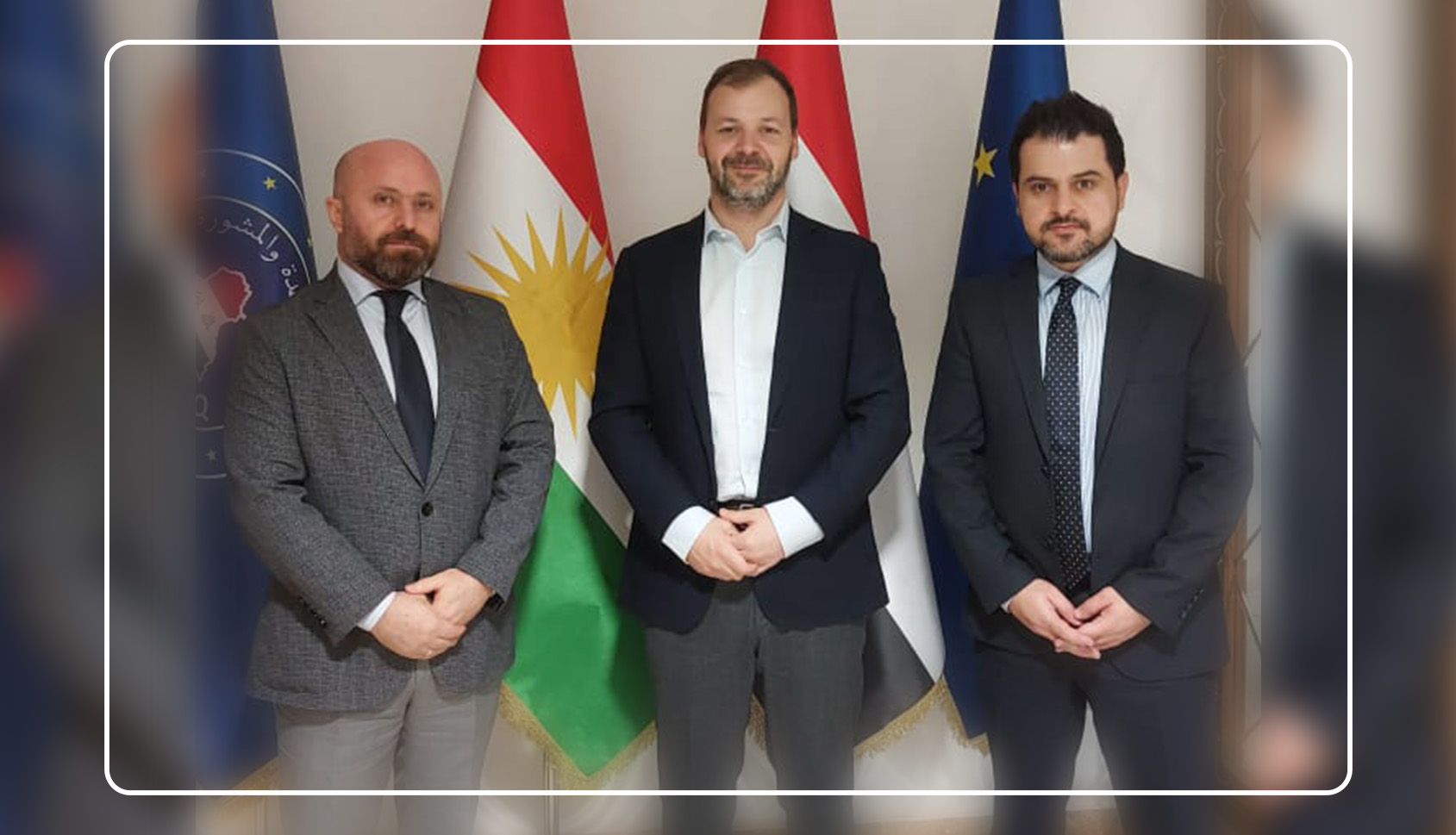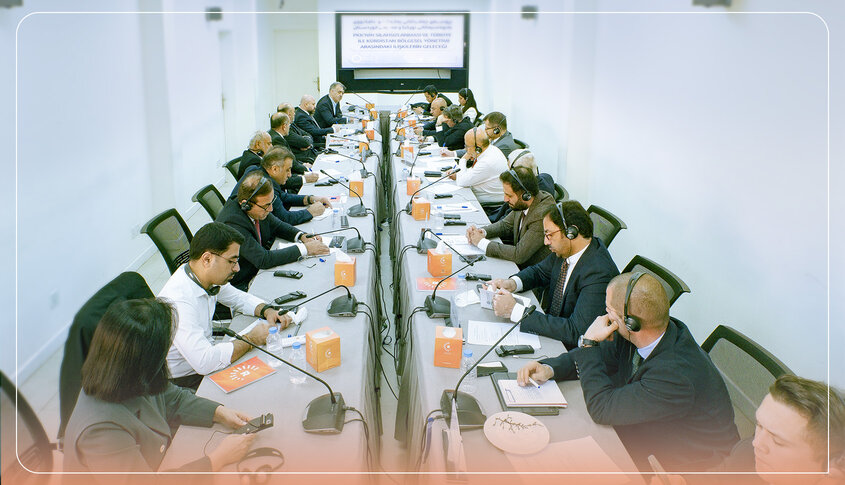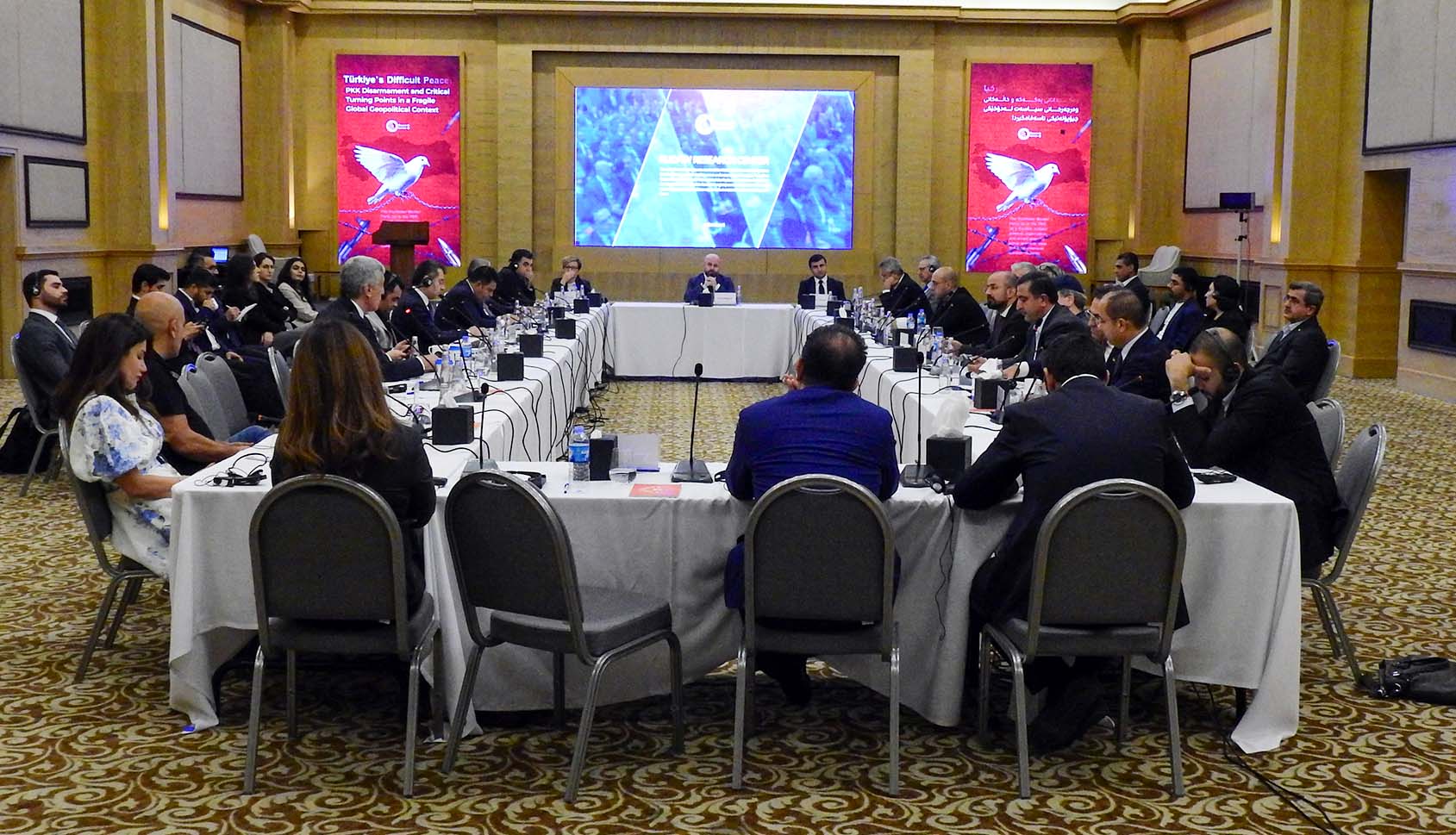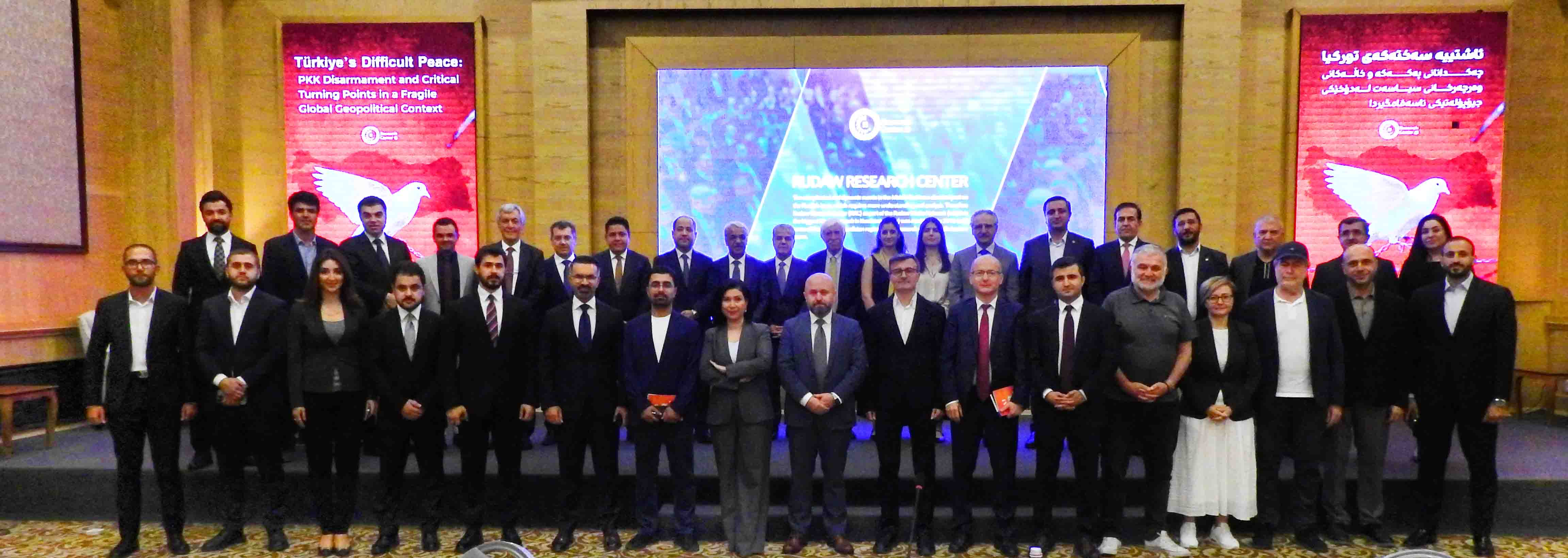RRC |
ERBIL, Kurdistan Region — Four years following the brutal attack on Shingal and the village of Kocho on August 15, 2014, the Rudaw Research Center in collaboration with the Office of Rescuing Yezidi Abductees hosted the International Conference on the Yezidi Genocide in Erbil on Wednesday.
“I hope this conference will get expanded in the future to help retain our rights and make our voices heard throughout the world,” Mayan Khaere Bag, the wife of Yezidi Prince Hazim Saeed from Shekhan told Rudaw English.
Following welcoming remarks by Nawzad Hadi, the Governor of Erbil Province and Ricardo Rodriguez, the Head of the Erbil Regional Office of UNAMI, a documentary film was shown with the testimonies of ISIS survivors including one rescued survivor from Kocho, an abducted and trained Yezidi child soldier and another survivor who was rescued from ISIS.
“I found this conference to be very important and God willing our genocide will get recognized,” she continued. “We are victims of genocide. What we suffered was a clear genocide. If the political parties, the Iraqi government and the KRG, assist us in this regard, it may get recognized,” added Bag.
The first session included the documentary films. Before the next three sessions began, there were three speeches given by advocates for Yezidis.
The first speech was presented by Vefin, a humanitarian NGO, followed by “The Yezidi Conundrum, No Escape, No Return” spoken by Amy Louis Beam, the director of AAJ Humanitarian organization, and then a speech by Paul Kingery entitled “Attitudes of Sinjari Yezidi IDPs toward Babies of ISIS Rapes of Yezidis.” Kingery is the executive director of the MedEast Organization.
Section two began shortly after and was entitled Identity and Genocide focused on the Yezidis and other populations of the world which suffered similar circumstances.
Mohammed Ihsan, the president of the International University of Erbil and former Minister of Human Rights in the KRG, talked about the political history of genocide in Iraqi Kurdistan.
Suren Manukhan, the deputy director of Armenian Genocide Museum & Institute in Armenia, spoke on the problem of Yezidi genocide in contemporary genocide studies.
His speech was followed by Edwin Shukar, Vice President of the European Jewish Congress who discussed the importance of “Preserving and Strengthening the Yezidi Identity: Lessons from the ethnic cleansing of Iraqi Jews.”
Finishing up the second panel was Vahram Petrosyan, the head of the Department of Armenian Kurdish Relations at Yerevan State University in Armenia, discussing “Two Centuries of Yezidi Genocide.”
The third session was entitled “Political, psychological, social and security repercussion of the Yezidi Genocide” with speeches from Vladim Maharenko, a historian and political scientist from Russia who discussed “The geopolitical preconditions of Yezidi Genocide.” Next was Heso Hurmi Osman, writer and researcher who spoke on “Genocide of the Yezidis: The International Response.”
Another speaker, Leonardo Perez, an expert on indigenous peoples and minority rights, and Consultant to UN in Geneva spoke on “Ayahuasca and other Indigenous Peoples Traditional Medicines: A Therapeutic Tool for Yezidi Refugees?”
Thomas McGree from the University of Exeter discussed the topic of “Yezidi Women, ISIS and the German Admissions Program to Baden-Wurttemberg” followed by a speech by Saad Stalloum, an expert on Iraqi minorities and human rights who discussed an action plan on preventing the next genocide in Iraq.
Four panelists took part, starting with Jan Ferman, the secretary general of International Association of Democratic Lawyers, in Belgium who discussed the necessity of an inclusive and comprehensive program for accountability for international crimes committed by ISIS; prosecuting genocide and crimes against humanity as such and not as any lesser crime.
Paul Newman Kumar, professor of Human Rights from the University of Bangalore, India, spoke of the Yezidi Genocide and the urgent need for prosecution.
His speech was followed by Kirmanj Othman, member of the KRG High Committee for the Recognition of Genocide against Yezidi Kurds and other religions and ethnic minorities speaking on the “Legal Mechanisms to bring ISIS to accountability and Genocide Recognition.”
The final speaker was Hussein Hasoon, the spokesperson for the High Governmental Commission on Recognition of Genocide against Yezidi Kurds and other Ethnic and Religious Groups, speaking about the KRG’s role in bringing ISIS to Justice.
Another speaker and author of the book ‘The Last Yezidi Genocide,’ Amy L. Beam also spoke to Rudaw English about the conference, having lived with Yezidis since day one of the genocide and has advocated for their rights, return and immigration.
“I think it was a great conference,” she told Rudaw. “I was really impressed by the massive amount of information that’s been brought together.”
Part of the conference was to allow experts to network.
“I’ve met some of these speakers,” she said. “The networking is probably as important or more important that the information that was shared.”
It was the first time Rudaw Research Center held the event.
“I don’t know if it will make a difference, but I know for sure if we don’t do something, nothing will happen, so we have to keep pushing forward and hoping,” she added.
Kocho is a symbol of ISIS atrocities against Yezidi people. Some 4,000 Yezidis used to live there.
When ISIS militants attacked Sinjar and its surroundings in August 2014, ISIS gathered 1,202 Kocho residents in the village school on August 15, 2014. They separated the women and children from the men. The men were taken away to be murdered and the women sold into sexual slavery. The fate of thousands of Yezidis remains unclear
Kocho is 22 kilometers from Sinjar city. Of the 1,202 people from kidnapped from Kocho, 395 were shot and buried in 22 mass graves. According to figures, 600 people from Kocho remain missing.





